South Korean President Yoon Suk Yeol is facing growing pressure to resign after his declaration of martial law was swiftly overturned by parliament.
Opposition parties have filed an impeachment motion, signed by 191 lawmakers, for discussion in the National Assembly. Yoon’s People Power Party has also urged him to dismiss Defense Minister Kim Yong-hyun over the crisis.
The move has triggered economic instability, with the central bank stepping in to stabilize markets, and sparked global diplomatic concerns, as senior advisers in Yoon’s government threaten to resign.

“As the ruling party, we feel deeply apologetic to the public for today’s disastrous situation,” Han Dong-hoon told reporters at the National Assembly after Yoon lifted martial law, as reported by Yonhap.
“President Yoon should directly explain the disastrous situation and hold those responsible strictly accountable, including the immediate dismissal of the defence minister who proposed the martial law,” Han added.
Kim, a former head of the Presidential Security Service and close aide to Yoon, was inaugurated as the defence minister in September. The Defence Ministry in Seoul confirmed Kim proposed martial law to Yoon.
Han said his party will work to minimize the impact on the nation’s economy and diplomacy, vowing to thoroughly investigate the situation and take necessary measures.
Meanwhile, senior advisers to Yoon told Yonhap they are ready to resign. The agency said the president’s chief of staff and national security adviser are among them. In total, 10 senior advisers to Yoon want to leave, the report said. The opposition has called for the president himself to resign immediately.
Central bank offers liquidity to ease tension
The monetary policy board of South Korea’s central bank on Wednesday, December 4 said it would provide “ample liquidity” to the market through repurchase agreements and other measures in order to minimize the impact of the political turmoil on the financial and foreign exchange markets, Yonhap reported.
The board at the Bank of Korea (BOK) decided after holding an extraordinary session, chaired by BOK Governor Rhee Chang-yong, to discuss ways of stabilizing the markets following the short-lived imposition of martial law.
The South Korean won was highly volatile in trading following the martial law announcement and plunged to its lowest level in more than two years in overnight offshore trading.
Diplomatic fallout
Seoul and Washington are delaying key nuclear deterrence talks and a related exercise originally set to take place in Washington on Wednesday, a Pentagon spokesperson said on Tuesday, according to Yonhap.
The two allies had planned to hold the fourth session of the Nuclear Consultative Group (NCG) to strengthen their deterrence efforts against North Korea’s evolving nuclear and missile threats.
But a spokesperson for the US Defence Department told Yonhap that the meeting is “postponed until further notice. We do not have information on rescheduling.”
The NCG was launched last year by Yoon and US President Joe Biden to improve the US extended deterrence commitment to using the full range of its military capabilities, including nuclear arms, to defend its ally.
Eyes on South Korea
Also in Washington, Secretary of State Antony Blinken issued a statement saying the US was closely monitoring the events surrounding the martial law declaration and welcomed Yoon’s decision to lift it.
“We welcome President Yoon’s statement that he would rescind the order declaring emergency martial law,” Blinken said, noting that rescinding the order complies with South Korea’s constitution following “the National Assembly’s unanimous vote to reject the declaration.”
A planned visit to South Korea led by Prime Minister Ulf Kristersson scheduled to arrive in Seoul on Thursday was postponed following the debacle, South Korean media reported.
“We have closely followed developments during the night of December 3rd,” read a statement by Kristersson’s office published by outlets including The Korea Herald and Yonhap. “With recent developments, we have concluded that it is better to travel to the Republic of Korea in the future.”
“As in all democracies, political differences are best solved through democratic processes and by the rule of law. In that spirit, the decision to lift martial law is a welcome step,” the statement continued.
Meanwhile, the Kyodo news agency reported that Prime Minister Shigeru Ishiba is watching South Korean developments with “particular and grave” concerns.
Ishiba, when asked about his reported interest in a summit with Yoon in South Korea in early January, told reporters that “nothing specific has been determined.”

































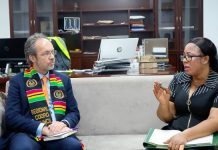
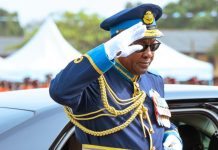
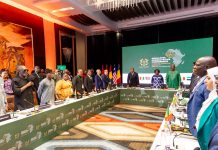
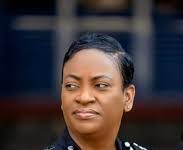



















![[FREE FREE MONEY] Predict and Win a Guaranteed GH¢200 From Us EVERY WEEK](https://wordpress.ghanatalksradio.com/wp-content/uploads/2022/02/Predict-and-Win-Final-09-03-2021-218x150.jpg)
![[Predict & Win – 8th/Oct.] WIN A Guaranteed ¢200 From Us This Week](https://wordpress.ghanatalksradio.com/wp-content/uploads/2021/10/maxresdefault-16-218x150.jpg)
![[Predict & Win – 2nd] WIN A Guaranteed ¢200 From Us This Week](https://wordpress.ghanatalksradio.com/wp-content/uploads/2021/09/maxresdefault-50-218x150.jpg)
![[Predict & Win – 25th] WIN A Guaranteed ¢200 From Us This Week](https://wordpress.ghanatalksradio.com/wp-content/uploads/2021/09/maxresdefault-36-218x150.jpg)
![[Predict & Win – 18th] WIN A Guaranteed ¢200 From Us This Week](https://wordpress.ghanatalksradio.com/wp-content/uploads/2021/09/maxresdefault-23-218x150.jpg)

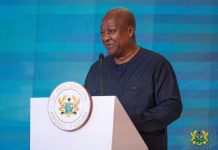
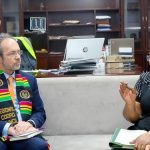
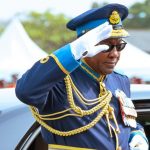






![[National cathedral] See full list of churches that have contributed since 2018](https://wordpress.ghanatalksradio.com/wp-content/uploads/2020/09/Ghana-National-Cathedral-GhanaTalksRadio-100x70.jpg)

![[Photos] Death toll rises to 134 after India suspension bridge swayed and collapsed](https://wordpress.ghanatalksradio.com/wp-content/uploads/2022/10/NADAC7E5HZMPRGYRDDTICGVKWI-100x70.jpg)

